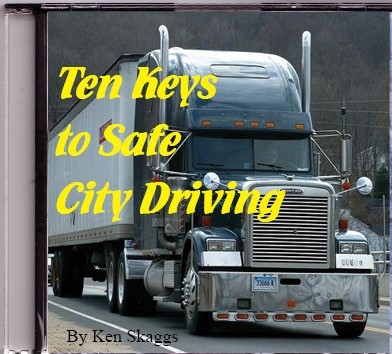|
Traffic Solution The answer to all of our traffic problems is simple. Everybody needs
to maintain eighty to one hundred foot
intervals
at all times on highways and ramps. And police need to enforce speed limits.
Yes, there will be
back-ups getting on. But, isn't that better than back-ups all the way down
the highway? Every article I've read pertaining to this subject
is either a
scientific approach, relating
it to gas particles in a tube (which would work only if everyone drove at the
same speed), or a
speeders view, trying to tell all of the slow vehicles to get out of the way.
It is true
as Bill Beaty said, that space is the anti-traffic.
Scientifically speaking, space is the opposite
of traffic. And we need to create and maintain space to combat traffic. It is also true as the speeders say, that a slow vehicle getting in front of you will slow you down (especially a truck, according to most of the speeders that I've heard whining.) But, if you want to receive goods, then we need to share the road with trucks. Since so many vehicles are traveling
at
a different rate of speed, space is still the answer. After
all, wouldn't you all agree
that a car or truck cutting in front of you, only slows you down if you are
tailgating? (As long as he is driving close to the same speed?) Think
about it. I see it everyday when I drive. By maintaining a great following
distance, I allow
anyone to cut in front of me and they usually can pass someone else and get
out of my way before
I catch up. It's the combination of taigating and trying to
drive faster than the flow
of traffic, that always causes people to step on their brakes. Especially those
who are doing
it! A good example of this is, the way people often
merge.
They bunch together and try
to drive faster than the flow of traffic, which of course makes them step on
their brakes and sometimes, that brings the whole highway to a stop. Speeders need to be patient and go with the flow,
instead of trying
to go into a space that
doesn't exist. I am convinced that if everybody knew this
and drove accordingly, there
would never be another traffic jam on a highway. And off the highway,
on streets, a smaller
interval would do, but space is still as important. Did you ever get stuck in the middle of an intersection during peak traffic times? That would never happen to you if you simply go with the flow and keep some space in front. Enough space, so that someone else could cut in front of you without slowing you down. Even when you stop, keep enough space in front of your vehicle, so that a car or truck could go through. You are not going to get to your destination any sooner if you get five or a hundred feet closer to the car in front of you, so why bother? It's the tailgaters that always cause the jams. Ask yourself this question: When traffic is heavy, averaging about 10 mph, how much space do you keep in front? Everybody has a number. 10 ft, 20 ft, 30? Whatever it is, answer this: When the car ahead of you moves out of your lane, do you close that gap to maintain your usual following distance? Of course most people do. So, with that in mind, you can see that, when someone cuts in front of us, then moves out of our lane, we are right back where we were, and so they really weren't in our way at all. Ken Skaggs |
Ten Keys to
Safe City
Driving
™
(Now available on Audio CD- Only $5) 1. Understand Traffic Waves Here are some satisfied customers-
|
All content on this site is written by Kenneth E. Skaggs
All rights reserved. No unauthorized duplication.
